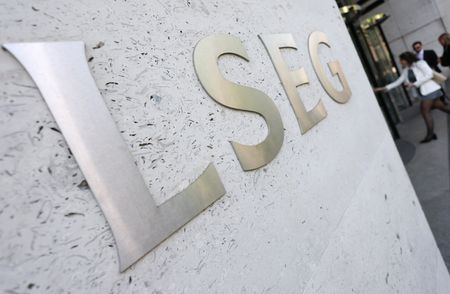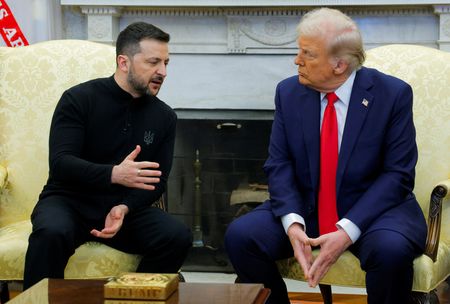By Marleen Kaesebier
(Reuters) -The outlook for European corporate health has further improved, the latest earnings forecasts showed on Tuesday, after the European Union struck a framework trade deal with the U.S. a little more than a week ago.
European companies are expected to report average growth of 3.1% in second-quarter earnings, LSEG I/B/E/S data shows. That is an increase from the 1.8% rise analysts had expected a week ago.
Before the tariff deal, earnings had been expected to fall 0.3% in the quarter.
This earnings season is the first to expose the impact of U.S. President Donald Trump’s tariff-fueled trade war on corporate health.
From last week, revenue is also expected to increase, the LSEG report showed. Analysts now expect a 2.0% fall, compared with a 3.3% drop expected before.
It compares with a 3.0% increase in earnings and a 0.8% drop in revenues a year ago.
After the EU agreement, Trump last Friday slapped new import tariffs on other countries, including a much higher 39% on EU-neighbour Switzerland.
The framework trade agreement with the EU, which sets out a 15% import tariff, will apply broadly to EU goods from next month. But the trading bloc is still waiting on executive orders that would bring down the tariff on some products, a senior EU official said on Tuesday.
The deal compares to a 30% tariff Trump had threatened to apply earlier in July.
Before the agreement, U.S. President Trump’s tariff policies have changed frequently since April, the most common start of the second fiscal quarter. Some were imposed while others were proposed and then delayed.
German logistics giant DHL on Tuesday confirmed its 2025 core profit expectations, opting to exclude potential tariff or trade policy impacts.
Continental meanwhile said on Tuesday that it suffered a net impact in a mid-double-digit million euro range from Trump’s tariffs.
Companies still to report this week include Novo Nordisk, Commerzbank, and Bayer.
As of Monday’s close, the STOXX 600 was up about 7% year to date.
($1 = 0.8545 euros)
(Reporting by Marleen Kaesebier, Anastasiia Kozlova and Amir Orusov in Gdansk; Editing by David Goodman and Matt Scuffham)











